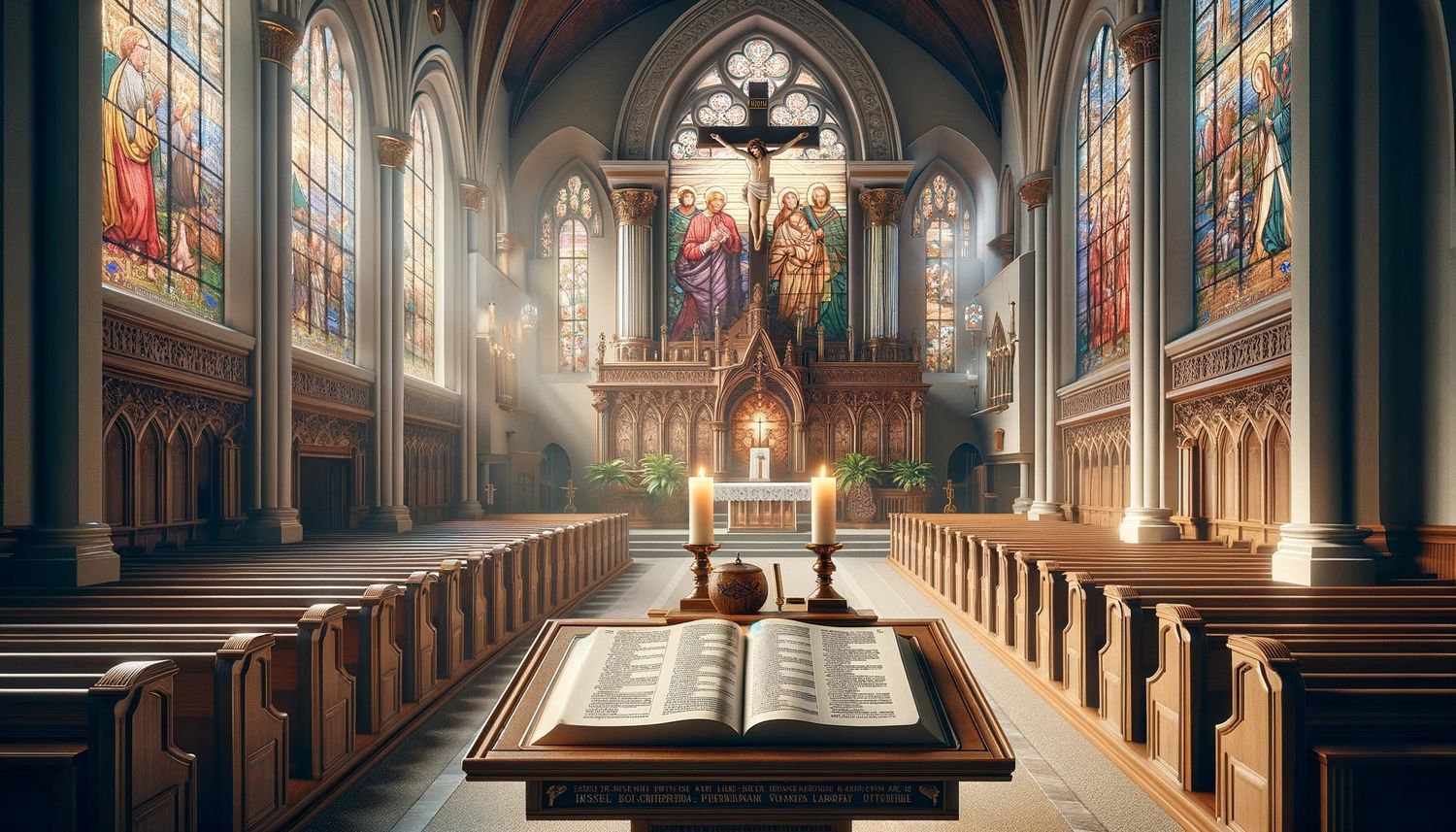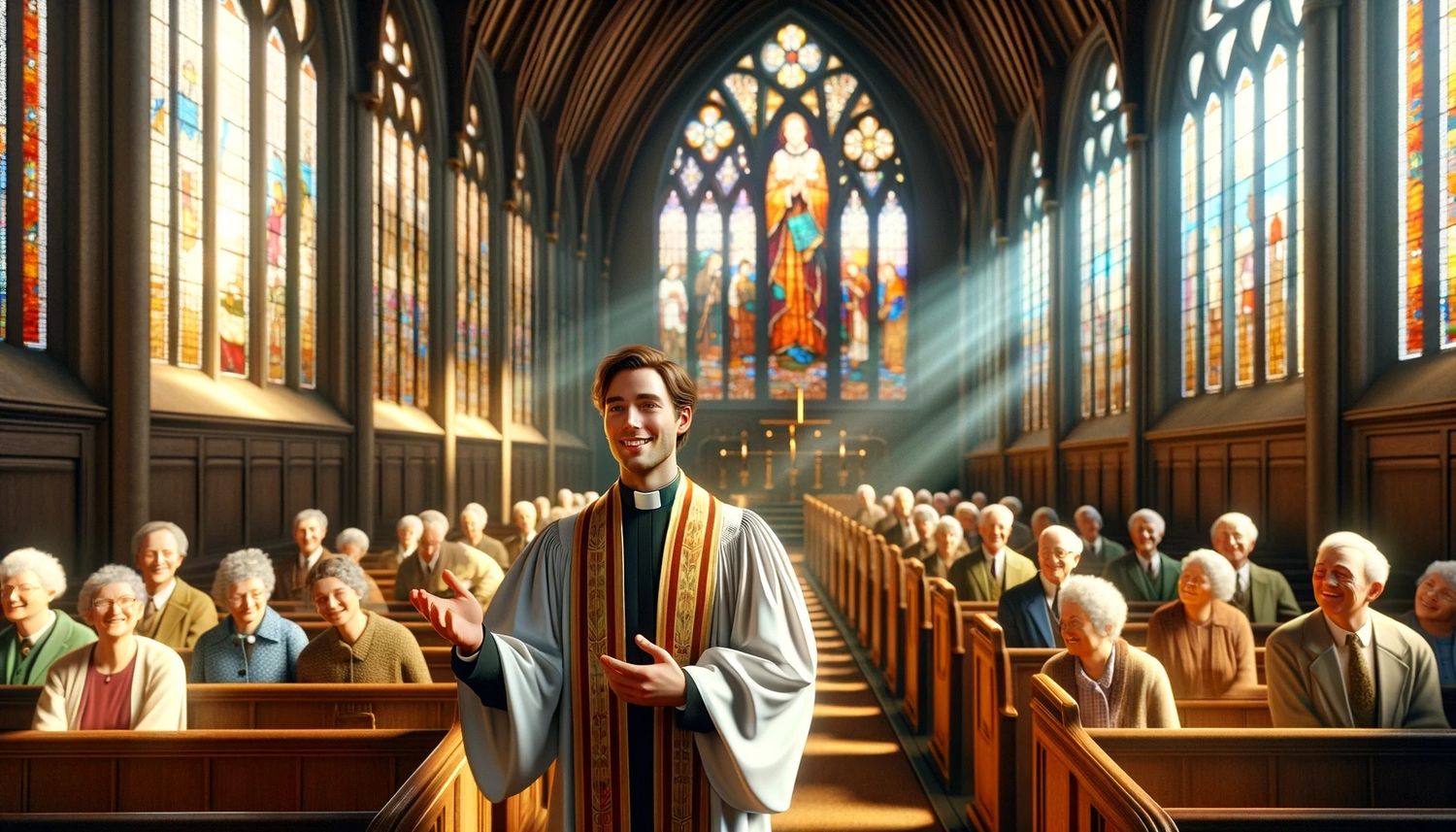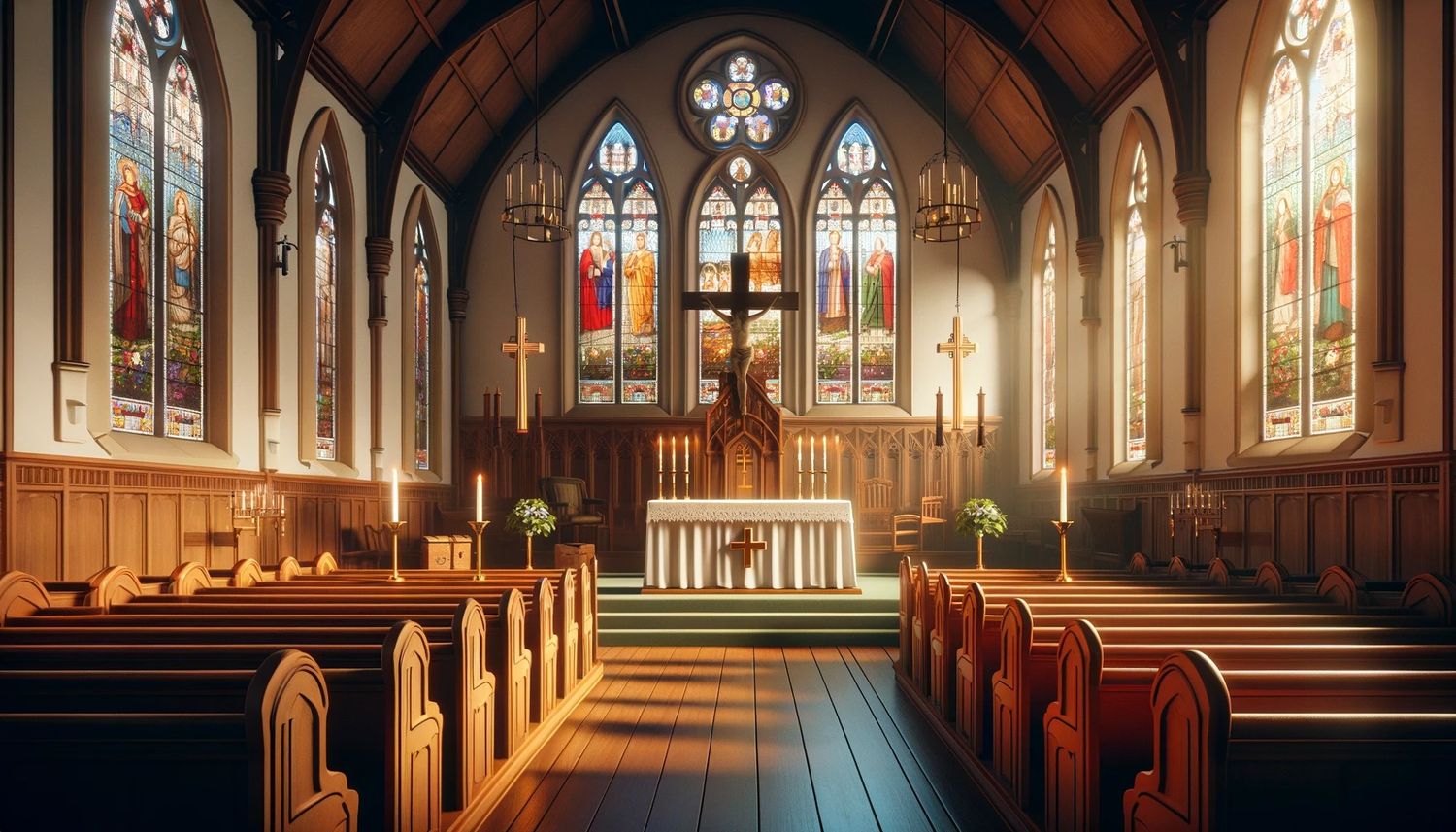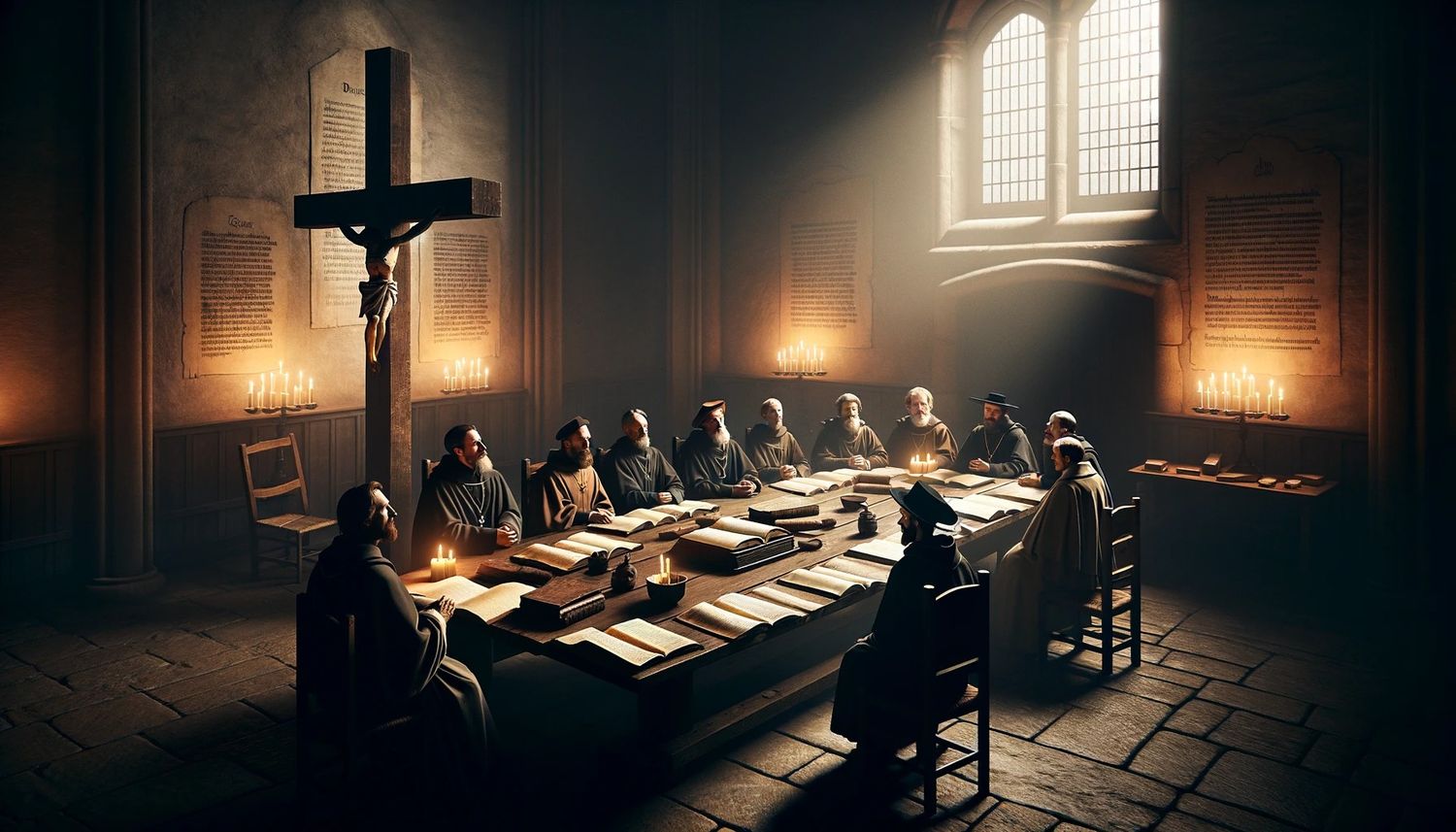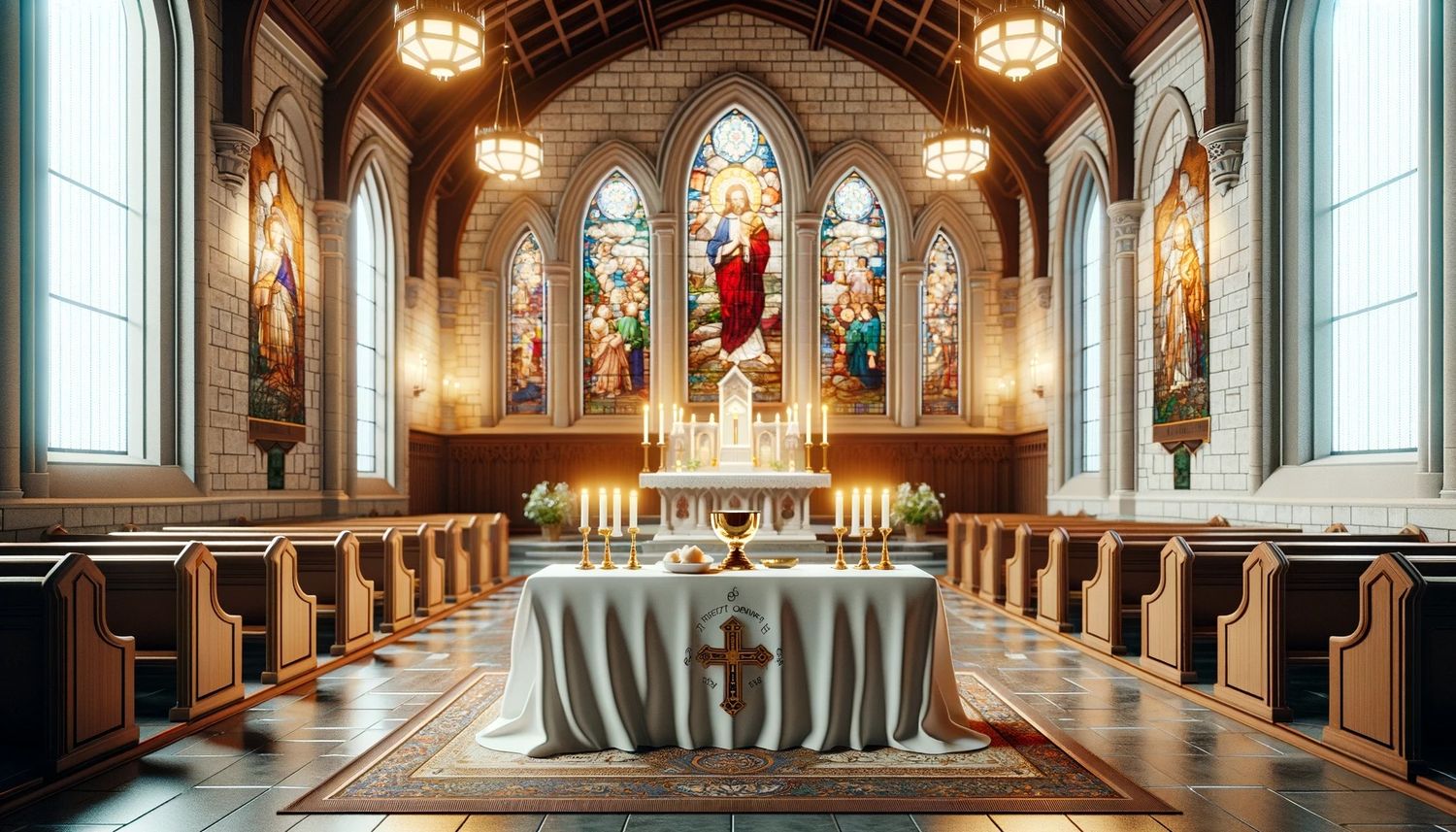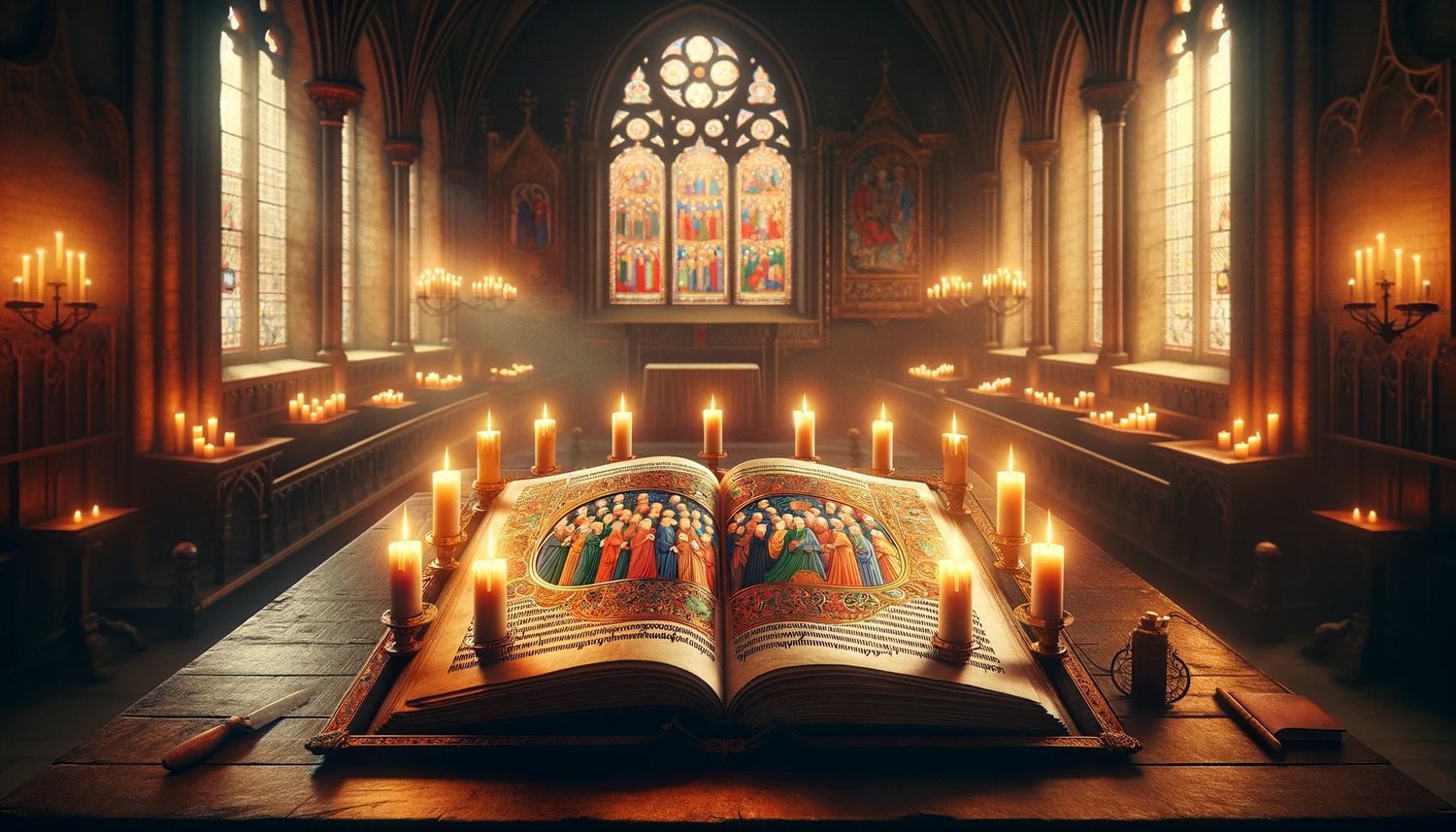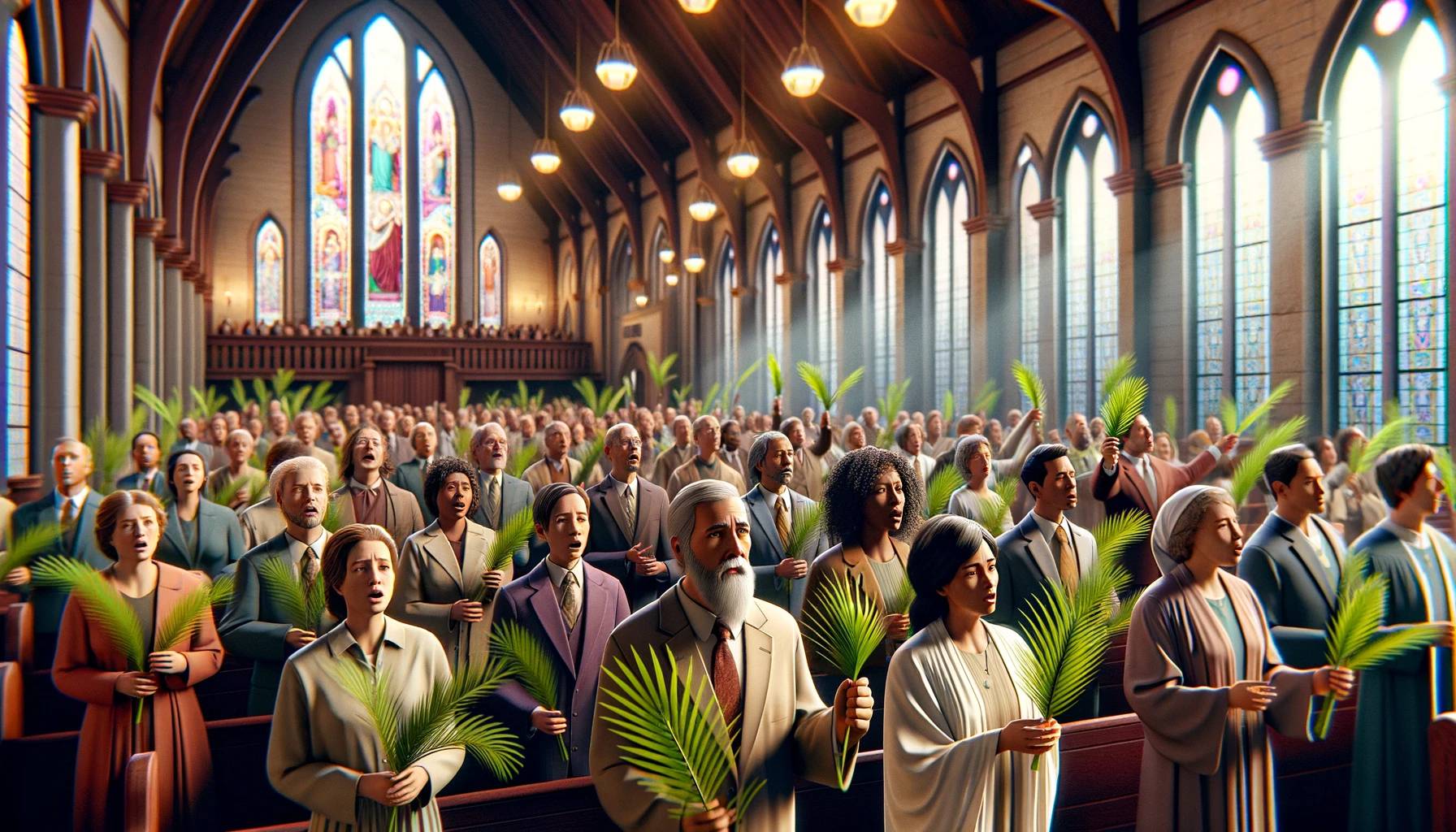Home>Theology and Spirituality>What Is Reformation Sunday In The Lutheran Church
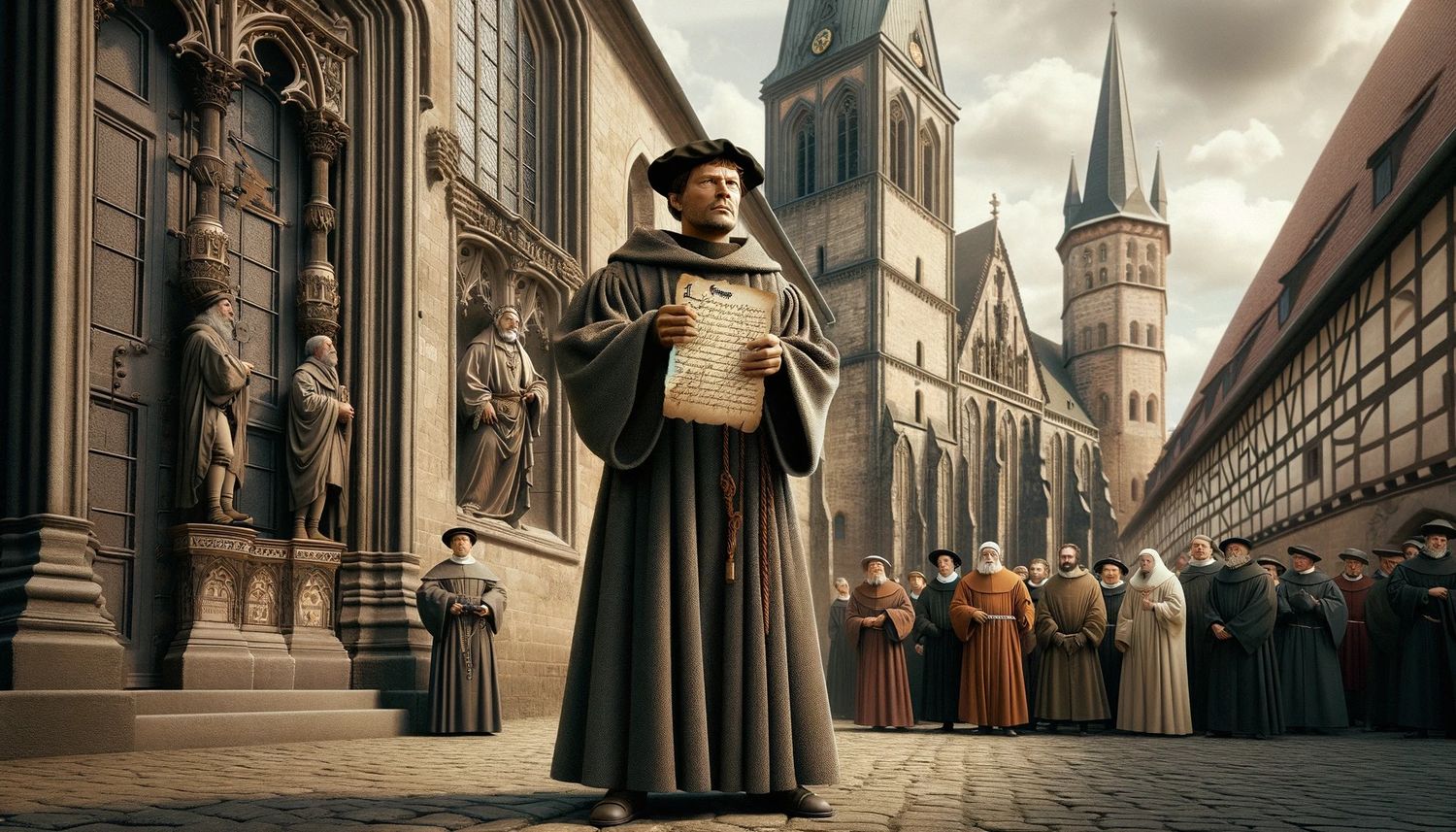

Theology and Spirituality
What Is Reformation Sunday In The Lutheran Church
Published: March 3, 2024
Ericka Andersen, an editor at Christian.net, expertly merges digital strategy with content creation, focusing on faith and societal issues. Her communication skills enhance the platform's engaging narratives, fostering meaningful dialogue on belief's impact on society.
Learn about the significance of Reformation Sunday in the Lutheran Church and its impact on theology and spirituality. Explore the history and traditions associated with this important observance.
(Many of the links in this article redirect to a specific reviewed product. Your purchase of these products through affiliate links helps to generate commission for Christian.net, at no extra cost. Learn more)
Table of Contents
History of Reformation Sunday
Reformation Sunday is a significant day in the Lutheran Church, commemorating the Protestant Reformation initiated by Martin Luther in the 16th century. The observance of Reformation Sunday dates back to October 31, 1517, when Martin Luther, a German monk and theologian, nailed his 95 Theses to the door of the Castle Church in Wittenberg, Germany. This act is considered the catalyst for the Reformation, a movement that sought to reform the practices of the Roman Catholic Church and ultimately led to the establishment of Protestantism. The day is celebrated on the last Sunday in October, or October 31st itself, in remembrance of this pivotal event in Christian history.
The observance of Reformation Sunday serves as a reminder of the courageous actions of Martin Luther and other reformers who challenged the prevailing religious authority and advocated for the primacy of scripture and faith in Jesus Christ. It also highlights the enduring impact of the Reformation on the development of Christian theology and the proliferation of Protestant denominations. Reformation Sunday provides an opportunity for Lutheran congregations and believers to reflect on their heritage, reaffirm their commitment to the core principles of the Reformation, and give thanks for the freedom to worship according to their conscience.
The history of Reformation Sunday is deeply intertwined with the legacy of Martin Luther and the transformative effects of the Reformation movement. As Luther's teachings spread throughout Europe, they sparked widespread theological debates and inspired individuals to question the doctrines and practices of the Catholic Church. The resulting schism led to the formation of distinct Protestant traditions, including Lutheranism, Calvinism, and Anglicanism, each with its own theological emphases and ecclesiastical structures. Reformation Sunday stands as a testament to the enduring influence of the events set in motion by Martin Luther and the profound impact they had on the course of Christian history.
Significance of Reformation Sunday in the Lutheran Church
-
Reaffirmation of Core Doctrines: Reformation Sunday holds immense significance for the Lutheran Church as it provides an opportunity to reaffirm the core doctrines of the Reformation. These include the principles of sola scriptura (scripture alone), sola fide (faith alone), sola gratia (grace alone), and solus Christus (Christ alone). By commemorating this day, Lutherans reaffirm their commitment to these foundational beliefs that distinguish their theological identity.
-
Celebration of Freedom: For Lutherans, Reformation Sunday is a celebration of the freedom found in Christ and the liberation from religious practices that were deemed contrary to the teachings of the Bible. It serves as a reminder of the courage and conviction of the reformers who stood against the prevailing religious authorities, advocating for the freedom to worship according to the dictates of conscience and the authority of scripture.
-
Reflection on Heritage: The observance of Reformation Sunday allows Lutheran congregations to reflect on their rich historical and theological heritage. It provides an opportunity for believers to connect with the legacy of Martin Luther and the early reformers, recognizing their contributions to the shaping of Lutheran theology and ecclesiastical practices. This reflection fosters a sense of continuity with the past and reinforces the identity of Lutheran communities.
-
Emphasis on Grace and Faith: Reformation Sunday holds particular significance in emphasizing the Lutheran understanding of salvation by grace through faith. It serves as a time to reflect on the central role of God's grace in the redemption of humanity and the necessity of faith as the means of receiving this gift. The day underscores the Lutheran belief in the primacy of God's unmerited favor and the assurance of salvation through faith in Christ.
-
Unity and Witness: In the Lutheran Church, Reformation Sunday is also a time to emphasize the unity of believers in Christ and their collective witness to the gospel. It serves as a unifying force, bringing together Lutheran communities around the world in a shared acknowledgment of their theological convictions and historical roots. This emphasis on unity reinforces the sense of belonging to a broader global communion of Lutheran believers.
Reformation Sunday holds profound significance in the life of the Lutheran Church, serving as a yearly reminder of its theological distinctiveness, historical legacy, and enduring commitment to the principles of the Reformation.
Observance and Traditions on Reformation Sunday
Reformation Sunday is observed with various traditions and practices in the Lutheran Church, reflecting the significance of the day and its historical importance. These observances serve to honor the legacy of the Reformation, celebrate the theological distinctives of Lutheranism, and foster a sense of community among believers.
Special Worship Services
Lutheran congregations often hold special worship services on Reformation Sunday, featuring liturgical elements that highlight the themes of the Reformation. These services may include the singing of hymns that are historically associated with the Reformation, readings from the writings of Martin Luther, and sermons focused on the core principles of the Reformation. The use of traditional liturgical colors, such as red, may also be incorporated to symbolize the spirit of martyrdom and the enduring impact of the Reformation movement.
Reformation Hymns and Music
Music plays a significant role in the observance of Reformation Sunday. Lutherans often sing hymns that are closely linked to the Reformation, such as "A Mighty Fortress Is Our God," written by Martin Luther himself. These hymns express the theological convictions of the Reformation and serve as a means of celebrating the enduring legacy of Lutheranism. Additionally, special musical performances or choir presentations may be featured to enhance the worship experience on this momentous occasion.
Read more: What Is A Reformed Baptist Church?
Educational Events and Seminars
Many Lutheran congregations organize educational events and seminars leading up to Reformation Sunday. These activities may include lectures on the history of the Reformation, discussions on the theological contributions of Martin Luther, and opportunities for congregants to deepen their understanding of Lutheran doctrine. By engaging in educational initiatives, believers are able to gain a deeper appreciation for the historical context and theological significance of the Reformation, enriching their observance of Reformation Sunday.
Commemorative Reformation Meals
In some Lutheran communities, Reformation Sunday is commemorated with special meals or fellowship gatherings. These events provide an opportunity for congregants to come together in a spirit of celebration and camaraderie, reflecting on the enduring impact of the Reformation and its implications for their faith. Such gatherings often feature traditional foods and beverages, creating a festive atmosphere that underscores the joy and gratitude associated with Reformation Sunday.
Emphasis on Reformation History and Artifacts
During the observance of Reformation Sunday, Lutheran churches may display historical artifacts related to the Reformation, such as copies of the 95 Theses, portraits of Martin Luther, or other significant relics. These visual representations serve as tangible reminders of the historical roots of the Lutheran tradition and offer congregants a glimpse into the events and personalities that shaped the Reformation. Additionally, educational displays or exhibitions may be arranged to provide further insights into the history and impact of the Reformation.
The observance of Reformation Sunday in the Lutheran Church is marked by a rich tapestry of traditions and practices that honor the legacy of the Reformation, deepen the theological understanding of believers, and foster a sense of unity and gratitude within the faith community. These observances serve as a testament to the enduring impact of the Reformation and its ongoing relevance in the life of the Lutheran Church.
Martin Luther and the Reformation Movement
Martin Luther, a pivotal figure in Christian history, played a central role in the Reformation movement that reshaped the religious landscape of Europe. Born in Eisleben, Germany, in 1483, Luther initially pursued a legal career before experiencing a profound spiritual awakening that led him to enter the Augustinian friary in Erfurt. His theological studies and personal struggles with the doctrines of the Catholic Church ultimately culminated in a transformative moment that would reverberate throughout the Christian world.
Luther's pivotal act of defiance occurred on October 31, 1517, when he publicly challenged the sale of indulgences by nailing his 95 Theses to the door of the Castle Church in Wittenberg. This bold gesture, intended to spark scholarly debate within the academic community, instead ignited a firestorm of controversy and catalyzed a movement for reform within the Catholic Church. Luther's writings and teachings, disseminated through the newly invented printing press, rapidly gained traction and kindled widespread support for his theological convictions.
At the heart of Luther's theological stance was the principle of sola scriptura, emphasizing the authority of scripture over ecclesiastical tradition and papal decrees. He contended that salvation was attainable through faith alone, rejecting the notion that good works or indulgences could secure divine favor. This emphasis on the primacy of faith and the grace of God became a defining feature of the Reformation movement and laid the groundwork for the development of Protestant theology.
Luther's translation of the Bible into German made the scriptures accessible to the common people, empowering them to engage directly with the Word of God. This vernacular translation not only facilitated a deeper understanding of the Christian faith but also contributed to the standardization of the German language. Luther's commitment to education and the dissemination of biblical knowledge led to the establishment of schools and universities, fostering a legacy of intellectual inquiry and theological scholarship within Protestant traditions.
The Diet of Worms in 1521 marked a critical juncture in Luther's life, as he stood before the imperial assembly and refused to recant his writings, famously declaring, "Here I stand, I can do no other." This steadfast defense of his beliefs solidified his status as a symbol of resistance against religious oppression and inspired countless adherents to embrace the cause of the Reformation.
Luther's influence extended beyond theological matters, encompassing social and political dimensions as well. His advocacy for the priesthood of all believers and the reformation of church practices resonated with individuals disillusioned by the corruption and opulence of the ecclesiastical hierarchy. The resulting upheaval precipitated profound changes in the realms of governance, education, and the arts, leaving an indelible imprint on the cultural fabric of Europe.
Martin Luther's enduring impact on the Reformation movement is evident in the proliferation of Protestant denominations and the enduring legacy of his theological insights. His unwavering commitment to the primacy of scripture, the grace of God, and the priesthood of all believers continues to shape the beliefs and practices of Lutheran communities and serves as a testament to the transformative power of conviction and courage.
Read more: What Is The Lutheran Church
Reformation Sunday Hymns and Liturgy in the Lutheran Church
Reformation Sunday holds a special place in the liturgical calendar of the Lutheran Church, and the choice of hymns and liturgy for this occasion reflects the theological and historical significance of the day. The hymns sung on Reformation Sunday often resonate with the themes of faith, grace, and the enduring legacy of the Reformation, serving as a musical expression of the core doctrines of Lutheranism.
A Mighty Fortress Is Our God
"A Mighty Fortress Is Our God" stands as the quintessential Reformation hymn, penned by Martin Luther himself. This hymn, based on Psalm 46, exalts the sovereignty and protection of God amidst the tumultuous challenges faced by believers. Its robust melody and triumphant lyrics have made it an emblematic anthem of the Reformation, encapsulating the steadfast trust in God's unfailing strength and the victory of faith over adversity.
Built on the Rock
"Built on the Rock" is another hymn commonly sung on Reformation Sunday, emphasizing the enduring foundation of the Christian faith. The lyrics underscore the unshakable nature of Christ as the cornerstone of the Church, providing a sense of assurance and stability in the midst of life's uncertainties. This hymn reinforces the theological emphasis on Christ as the focal point of Lutheran doctrine and the source of steadfast hope for believers.
Salvation Unto Us Has Come
"Salvation Unto Us Has Come" is a hymn that articulates the Lutheran understanding of salvation by grace through faith. Its verses expound on the redemptive work of Christ and the assurance of forgiveness and eternal life bestowed upon believers. This hymn serves as a poignant expression of gratitude for the unmerited favor of God and the transformative power of His saving grace, central themes of the Reformation message.
Liturgical Emphasis
In addition to the choice of hymns, the liturgy for Reformation Sunday in the Lutheran Church often incorporates elements that highlight the historical and theological significance of the day. Special readings from the writings of Martin Luther or other reformers may be included, offering insights into the foundational principles of the Reformation. The use of liturgical colors, particularly red, symbolizes the spirit of martyrdom and underscores the courage and conviction of the reformers who championed the cause of religious reform.
Commemorative Prayers and Confessions
Prayers and confessions specific to Reformation Sunday may be integrated into the liturgy, acknowledging the contributions of the reformers and expressing gratitude for the enduring impact of the Reformation. These prayers often emphasize the ongoing need for spiritual renewal and steadfast commitment to the foundational truths of the Christian faith. They serve as a means of connecting the present-day congregation with the historical legacy of the Reformation and its implications for their faith journey.
Reflective Sermons
Reformation Sunday sermons in the Lutheran Church typically center on the core principles of the Reformation, exploring the themes of grace, faith, and the authority of scripture. These sermons provide an opportunity for pastors to expound on the enduring relevance of the Reformation message and its implications for contemporary Christian life. They often encourage believers to embrace the spirit of reform and renewal in their personal faith and communal worship.
The hymns and liturgy of Reformation Sunday in the Lutheran Church collectively contribute to a rich and meaningful worship experience, underscoring the theological distinctives of Lutheranism and commemorating the enduring legacy of the Reformation. Through music, prayer, and proclamation, believers are invited to engage with the historical roots of their faith and reaffirm their commitment to the foundational truths espoused by the reformers.

